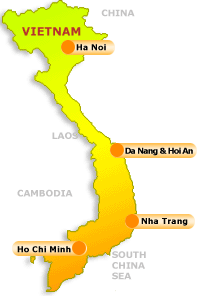To Sue Or Not To Sue
It seems airline passengers can’t get a straight answer on the issue of compensation for the development of blood clots on long-haul airline flights. Known as Deep Vein Thrombosis (DVT), this condition is characterized by the formation of deadly blood clots after long periods of immobility. Last week, Britain’s Court of Appeal upheld a lower-court ruling that passengers cannot sue airlines for compensation after developing DVT. At the same time, a U.S. federal judge says he will allow two lawsuits filed by two passengers to proceed against Continental Airlines , Air France and American Airlines.
It seems airline passengers can't get a straight answer on the issue of compensation for the development of blood clots on long-haul airline flights. Known as Deep Vein Thrombosis (DVT), this condition is characterized by the formation of deadly blood clots after long periods of immobility. Last week, Britain's Court of Appeal upheld a lower-court ruling that passengers cannot sue airlines for compensation after developing DVT. At the same time, a U.S. federal judge says he will allow two lawsuits filed by two passengers to proceed against Continental Airlines , Air France and American Airlines. In the British case, the court dismissed the case filed by two dozen passengers who sought an appeal of a High Court ruling in December. This latest ruling said DVT could not be classed as an accident under the Warsaw Convention, the international agreement that regulates compensation for death and injury during air travel. In the U.S. action, the plaintiffs claim the airlines failed to warn passengers that sitting down for extended periods in cramped quarters could cause DVT. The airlines, however, argue that the allegations have "no factual basis." A hearing on the lawsuits is set for July 22.






